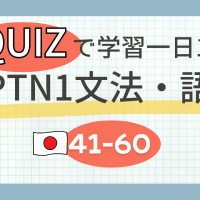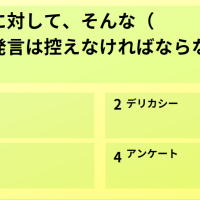tameguchi #3 ~なきゃ、~なくちゃ、~なきゃいけない as “I have to ~.”
![]() What’s tameguchi?
What’s tameguchi?
In spoken Japanese, phrases like ‘‘ mean ‘I have to ~’ in English. For example, ‘I have to leave.’ In Japanese schools and textbooks, it is taught as ‘私は帰らなければなりません’ (Watashi wa kaeranakereba narimasen), but in actual conversations with friends, family, or close colleagues, people say things like ‘帰らなきゃ’ (Kaeranakya), ‘帰らなくちゃ’ (Kaeranakucha), or ‘帰らなきゃいけない’ (Kaeranakya ikenai). Now, let’s practice using some real examples.
For example: It’s already 6 o’clock, so I have to go home. は、「もう6時ですから、私は家に帰らなければなりません」(Japanese language school/ textbook-written Japanese)と 教えています。However, in reality, when talking with friends, family, coworkers, or close younger people, we use expressions like “もう帰らなきゃ (I have to go home now),” “もう帰らなくちゃ (I gotta go home),” or “もう帰らなきゃいけない (I really have to go home)” using “tameguchi.” Using “tameguchi” in conversation conveys a sense of closeness. ”帰らなきゃ,” “帰らなくちゃ,” and “帰らなきゃいけない” all have the same meaning, but they may vary slightly depending on the context.
例如:已經六點了,所以我必須回家了。(日本語學校/教科書上的日本語說法)然而,在現實中,當與朋友、家人、同事或親近的年輕人交談時,我們會使用”もう帰らなきゃ(我必須回家了)”、”もう帰らなくちゃ(我得回家了)”或”もう帰らなきゃいけない(我真的得回家了)”這樣的語言表達,使用”tameguchi”。在對話中使用”tameguchi”表達了親近感。”帰らなきゃ”、”帰らなくちゃ”和”帰らなきゃいけない”都有相同的意思,但根據上下文可能會略有不同。
なきゃ、なくちゃ、なきゃいけないの作り方
なきゃ (nakya):
Start with a verb in its negative form (e.g., 食べる → 食べない).
Add “なきゃ” to the negative form.
Example: 食べなきゃ (tabenakya) means “have to eat” or “must eat.”
なくちゃ (nakucha):
Similar to “なきゃ,” it’s used after a negative verb.
Example: 食べなくちゃ (tabenakucha) also means “have to eat” or “must eat.”
なきゃいけない (nakya ikenai):
Again, start with a verb in its negative form.
Add “なきゃいけない” to express a stronger necessity.
Example: 食べなきゃいけない (tabenakya ikenai) means “must eat” with a sense of obligation.
Remember:
You can use these endings to talk about things you have to do.
If you want to be more polite, you can use “なければなりません (nakereba narimasen)” instead of “なきゃいけない.”
Practice using these endings with verbs you know, and you’ll be able to express your needs and obligations in Japanese conversations. Keep learning, and you’ll get the hang of it!
- Japanese: 写真を送らなきゃ。 English: I have to send the photos. Traditional Chinese: 我得寄照片。
- Japanese: このメールに返信しなくちゃ。 English: I have to reply to this email. Traditional Chinese: 我得回這封電子郵件。
- Japanese: 彼に事情を説明しなきゃいけない。 English: I have to explain the situation to him. Traditional Chinese: 我得向他解釋情況。
- Japanese: 犬を散歩させなきゃ。 English: I have to walk the dog. Traditional Chinese: 我得帶狗散步。
- Japanese: 今夜の夕食を準備しなくちゃ。 English: I have to prepare tonight’s dinner. Traditional Chinese: 我得準備今晚的晚餐。
- Japanese: チームに報告しなきゃいけない。 English: I have to report to the team. Traditional Chinese: 我得向團隊報告。
- Japanese: ギフトを包まなきゃ。 English: I have to wrap the gift. Traditional Chinese: 我得包裝禮物。
- Japanese: ランニングを続けなくちゃ。 English: I have to keep running. Traditional Chinese: 我得繼續跑步。
- Japanese: 窓を閉めなきゃいけない。 English: I have to close the window. Traditional Chinese: 我得關窗戶。
- Japanese: 旅行の計画を立てなきゃ。 English: I have to plan the trip. Traditional Chinese: 我得規劃旅行。
- Japanese: 明日のミーティングの資料を準備しなくちゃ。 English: I have to prepare the materials for tomorrow’s meeting. Traditional Chinese: 我得準備明天會議的資料。
- Japanese: 美容院の予約を変更しなきゃいけない。 English: I have to change my salon appointment. Traditional Chinese: 我得改變美容院的預約。
- Japanese: 電球を交換しなきゃ。 English: I have to change the light bulb. Traditional Chinese: 我得更換燈泡。
- Japanese: 彼女の誕生日を祝わなくちゃ。 English: I have to celebrate her birthday. Traditional Chinese: 我得慶祝她的生日。
- Japanese: 医者のアドバイスに従わなきゃいけない。 English: I have to follow the doctor’s advice. Traditional Chinese: 我得遵循醫生的建議。
- Japanese: スーパーに買い出しに行かなきゃ。 English: I have to go grocery shopping. Traditional Chinese: 我得去超市買東西。
- Japanese: 新しいプロジェクトの提案を作成しなくちゃ。 English: I have to create a proposal for the new project. Traditional Chinese: 我得為新項目製作提案。
- Japanese: 領収書を整理しなきゃいけない。 English: I have to organize the receipts. Traditional Chinese: 我得整理收據。
- Japanese: 車のメンテナンスを予約しなきゃ。 English: I have to book a car maintenance appointment. Traditional Chinese: 我得預約汽車維修。
- Japanese: ジムに行かなくちゃ。 English: I have to go to the gym. Traditional Chinese: 我得去健身房。







 Yukiko
Yukiko










この記事へのコメントはありません。